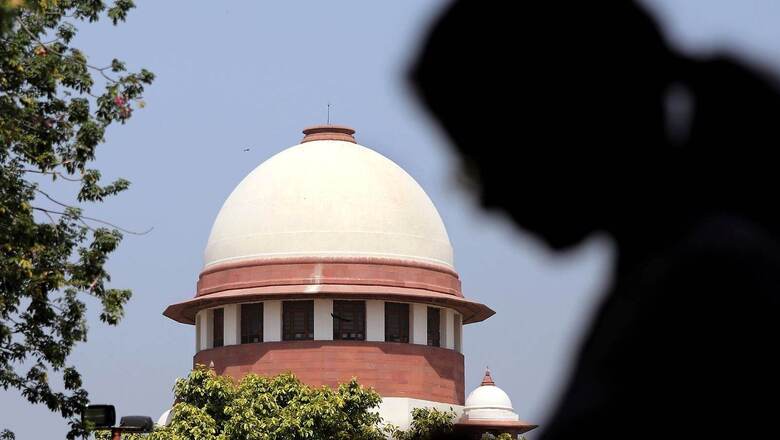Let's Talk Law | 'Consultation Is Key': Can Govt Bring Another Legislation on Judicial Appointments?

views
The persistent attacks from the Centre on the present collegium system of appointment of judges do not seem to be mere hollow noise of a power tussle. The virtual skirmish between the executive and the judiciary often gets personal in nature, dominated by clashes of individual personalities. History is full of such examples. The buzz around the power tussle rarely touches on paradigms of reform. The present stand-off between the government and the judiciary, I argue, is indicative of serious systemic changes that the government is keen on. Such changes can only be brought in through a legislative process.
So, when the basic structure doctrine, which was authoritatively cited to strike down the National Judicial Appointments Commission (NJAC), is questioned by the Vice President or when the law minister purportedly seeks a representation of the Centre in the present collegium, the attacks and barbs are driven by some serious thought.
Can the government bring in another law on judicial appointments? Legally and politically, the answer is a resounding, ‘yes’. Leading voices within the Supreme Court Bar have argued that if another law is brought in that preserves the primacy of the Chief Justice of India, or simply gives veto power to the CJI, then perhaps such a law, arguably, can survive a judicial test, if challenged in the apex court. NJAC was found violative because it did not respect the primacy of the Chief Justice of India.
Too much focus has been put on the primacy of the CJI, which is the law of the land and no legislation can change that. In this misplaced discourse, another crucial aspect has been ignored. I argue that the core value guiding judicial appointments, envisioned by the Constitution framers and evident through the constituent assembly debates, is the process of ‘consultation’. Whether it’s the executive or the judiciary, no single institution can have absolute power over judicial appointments. The Constitution makers recognised the special role of the CJI along with the role of the legislature and the President. All of these constitutional offices work in tandem to serve public interest. The process of judicial appointments must be made fair and transparent through checks and balances.
The power of veto is not the only point where the power is concentrated in judicial appointments. Let’s put veto aside and focus on other crucial aspects. The new law, if framed, can pave the way for a secretariat to be set up as envisioned by the Supreme Court itself in part two of the NJAC judgement. The new law can also lay down a transparent mechanism for the process of elevation of judges with power evenly squared between the judiciary and the executive. The law may also provide a complaint redressal mechanism and demand disclosure from candidates about their relations within the judicial fraternity. Nepotism is a deep-rooted issue within the judiciary that demands structural changes.
When judges are considered for elevation from High Court to the Supreme Court, there is no formal, transparent, methodical, and qualitative assessment of the judgments rendered by a particular judge, available in the public domain. The process right now works on informal mechanisms and perception. The country deserves a law that sets up a mechanism where judges and their judicial work are audited, and such a step shall inspire more public confidence in judicial appointments.
Lack of accountability of any institution, I argue, is violative of basic structure. Accountability must be sought in judicial appointments without tinkering with the primacy of the CJI. A smart piece of legislation can focus on what the Supreme Court has already laid down in its own orders. The ball is in the court of the government, and indeed it would be a huge step in India’s constitutional evolution.
Read all the Latest India News here















Comments
0 comment